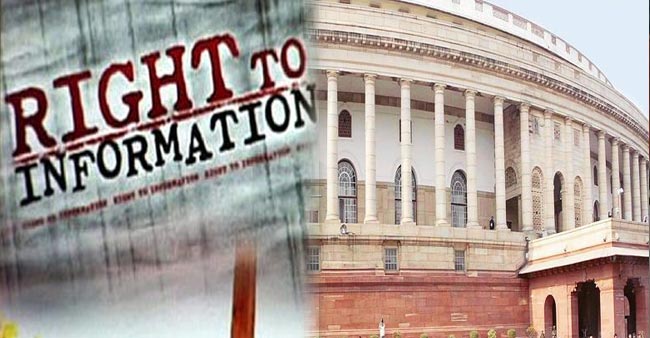
The Ministry of Personnel, Public Grievances and Pensions has proposed changes to the Right to Information Act, which was last amended in 2012.
Hindustan Times reported that as per the proposed changes, RTI applicants will have to pay more to obtain information and a 500-word limit will be put on the RTI application. Let’s understand from RTI activists of what the government is proposing.
Is the 500-Word Limit on RTI Pleas New?
Satyananda Mishra, ex-Chief Information Commissioner, said that the word limit is not new and has been around for a few years now. He added:
The issue before the DoPT and the government was that RTI applications were inordinately long and a single application could run into several pages, seeking hundreds of queries. This would make it difficult for the respondent to reply to it all within 30 days. Which is why the 500-word limit was set so that whatever information was sought in that, could be answered (in the given time frame).
He said that to stop the clubbing of several topics and queries together, the 500-word limit came up. Mishra said that through this, the first 500-words would be recognised as the legitimate query and the rest would be ignored.
Alok Prasanna, an advocate, said that the 500-word limit is more like a guide. So, applicants can file different RTIs to get the answers to their queries.
Anil Galgali, an RTI activist, said that the 500-word limit would pose a problem to those who are illiterate and those filing an RTI application for the first time, as they would not know the format to file an RTI plea in.
It should be noted that with the new rules, there is a format that applicants should follow, to help them keep their application brief.
Will Cost of Filing RTI Applications Increase?
As per the 2012 rules and the new rules up for consideration, the RTI application will have to be accompanied with a fee of Rs 10. So, there is clearly no increase in the cost of filing of an RTI application.
Will the Procedure Fully Move Online?
The HT report also mentioned that applications will only be filed digitally now, thereby excluding a large chunk of the population which does not have access to the internet from filing RTIs. Both Prasanna and Galgali clarified that this was not the case and applications filed offline will still be accepted.
What Happens In Case of An Applicant’s Death
The Centre has drafted rules under which an RTI application would cease to exist if the applicant passes away, according to a report in The Economic Times.
Prasanna said that an RTI application is not like a criminal or civic proceeding, where a matter is terminated if the applicant passes away.
In an RTI case, the power lies with the CIC to decide when it is to be terminated.
He said that at any point of time, if an applicant wishes to withdraw his RTI application, he is free to do so, as one can’t be compelled to be a litigant.
Galgali said that even after RTI activist Bhupendra Vira was shot dead, the BMC was ordered by the CIC to declassify the information sought by him and post it online, as it was in the wider public interest and not information concerning only him.
You too can voice your concerns about the proposed RTI changes and send suggestions till 15 April 2017 via email to Preeti Khanna, Under Secretary (RTI), North Block, at usrti-dopt@nic.in.
